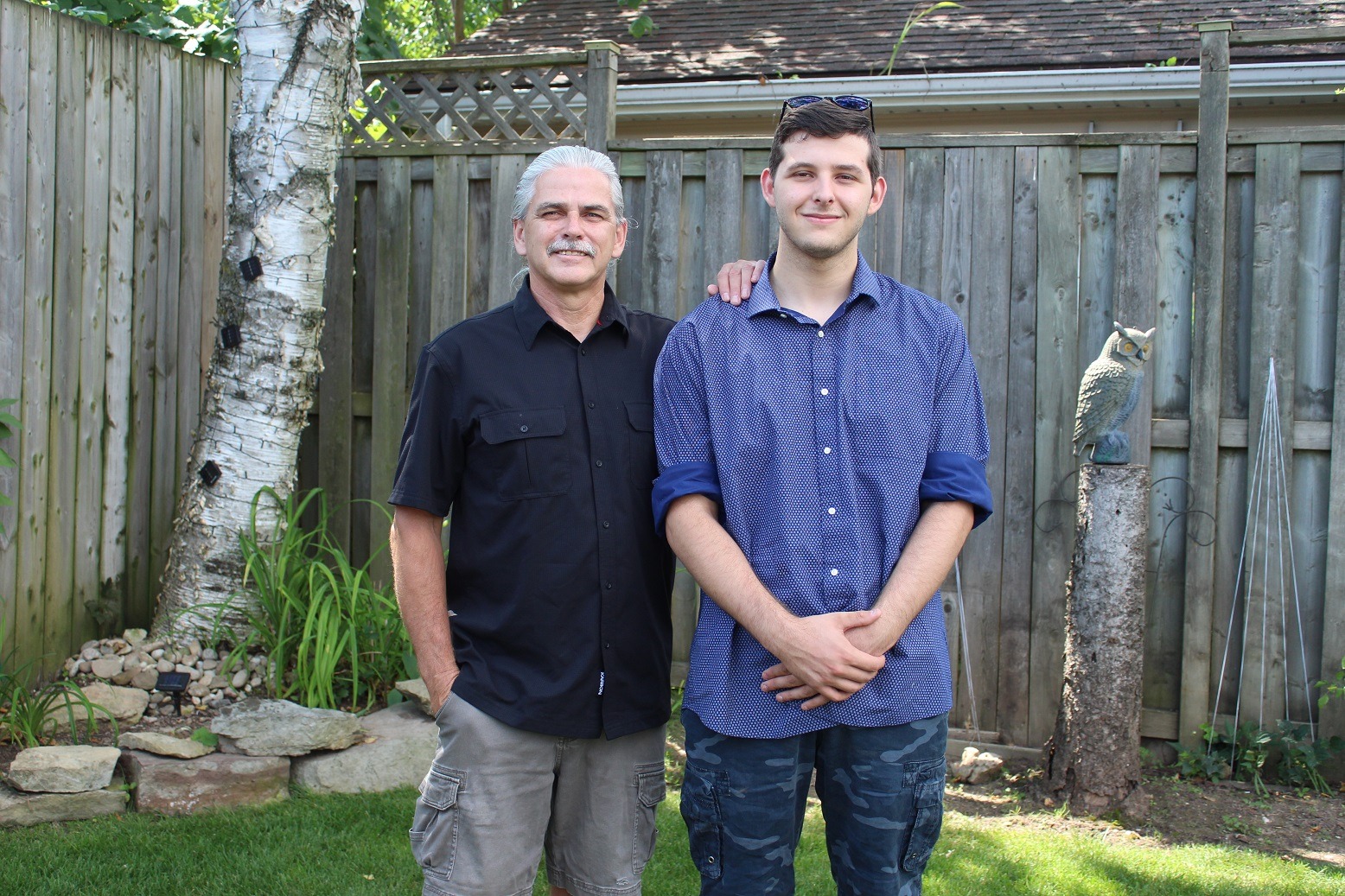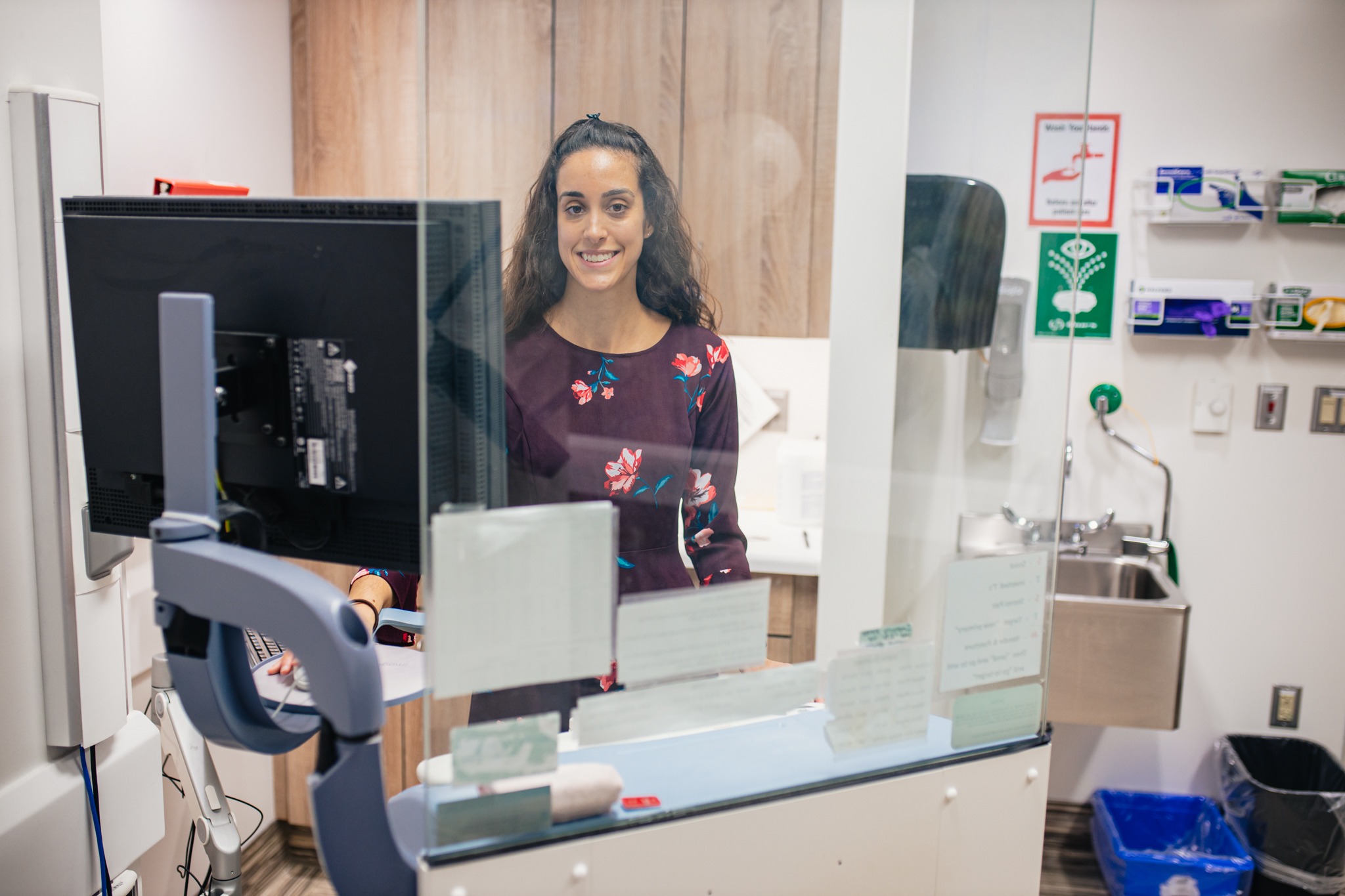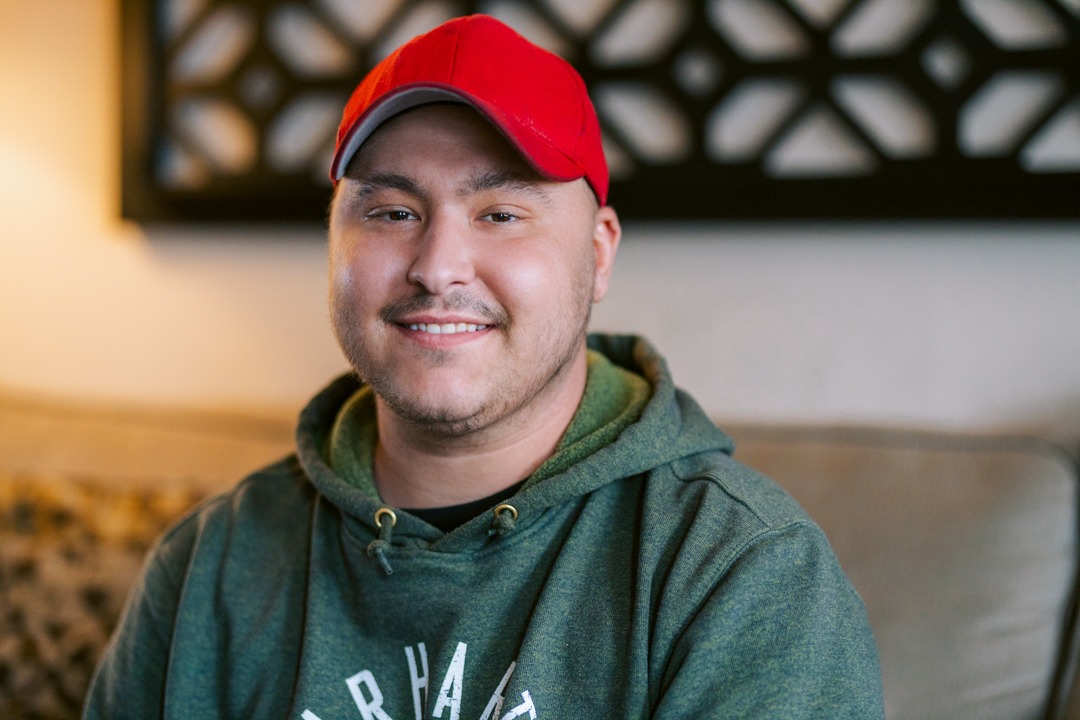
Healthy diet an important part of cancer treatment
Registered dietitian Karen Biggs helps Hamilton Health Sciences (HHS) cancer patients prepare for treatment, manage symptoms and recover faster through the foods they eat.
“I get up every single morning and love going to work,” says Biggs, who is with the supportive and palliative care program at the Juravinski Hospital and Cancer Centre (JHCC). Biggs has spent the past 30 years working with cancer patients and has a master’s degree in health sciences. “I love working with this patient population. I find that cancer patients are very receptive to receiving information that helps them better manage their symptoms and treatment.”
“We want to help patients get in their best fighting shape.”
Good nutrition is an important part of a patient’s healthcare strategy before, during and after treatment such as chemotherapy, radiation therapy and immunotherapy. “Eating the right kinds of foods can help patients tolerate their treatments better and give them the strength they need for recovery and healing,” she says.
Before cancer treatment
Eating a diet with plenty of calories and protein helps patients prepare for treatment by building extra strength for healing, preventing body tissue from breaking down, fighting off infection and dealing with higher doses of treatment.
“We want to help patients get in their best fighting shape for their treatment,” says Biggs. “Once treatment starts, a patient’s requirement for calories and protein increases by as much as 20 per cent. Good nutrition beforehand helps their body prepare, with good protein stores.”
During cancer treatment
It’s important for cancer patients to continue eating well during treatments. Some patients receive individual treatments while some receive a combination. Regardless, most treatments can impact a patient’s appetite and nutrition for reasons including loss of weight or muscle mass.
“Their body is trying to cope with treatment.”
“If their body also needs to cope with significant weight loss and malnutrition it becomes a vicious cycle,” says Biggs.
Registered dietitians assess patients by tracking weight loss, loss of body fat and muscle, checking blood work and monitoring symptoms. They can offer advice for loss of appetite, such as choosing bland foods and having more, smaller meals each day. They can also recommend medications and nutritional supplements to help patients regain their appetites and get enough calories and protein.
Often food has to be viewed as medicine as patients forge through treatment. If treatment side effects prevent optimal oral intake then tube feeding is considered. Dietitians work with the interdisciplinary team to manage feeds and tolerance.
“It’s important to choose foods wisely by eating plenty of calories and protein.”
Cancer malnutrition is not only due to physical and metabolic effects of the cancer, but also due to the effects of anticancer therapies. “Eating well is something patients can do for themselves that will benefit them in the long run,” says Biggs. “It’s important to choose foods wisely by eating plenty of calories and protein.” While side effects of treatment can include a loss of appetite, it’s important to eat. Safe food handling is also essential, since cancer patients need to be extra careful about germs.
After cancer
A healthy diet after cancer treatment helps patients regain their strength, rebuild tissue and feel better. During recovery, patients are encouraged to return to Canada’s Food Guide. This includes eating a variety of foods, cutting back on saturated animal fat, salt, sugar and alcohol. It’s also important for patients to continue following safe food-handling guidelines.
For more information
Patients can ask their healthcare team for a referral to a registered dietitian. Physicians can also refer patients who are struggling and need support. The JHCC provides new cancer patients with written materials from the hospital, including contact information for registered dietitians who can provide materials on healthy eating strategies. The Canadian Cancer Society also has excellent online resources.
Today is World Cancer Day, an international day marked on Feb. 4 to raise awareness of cancer and to encourage its prevention, detection, and treatment.



